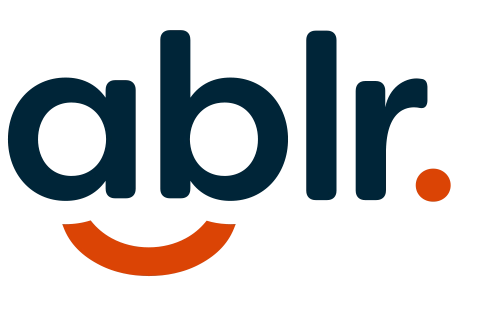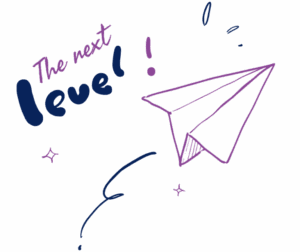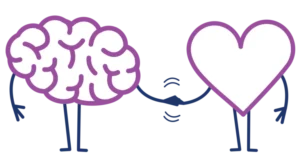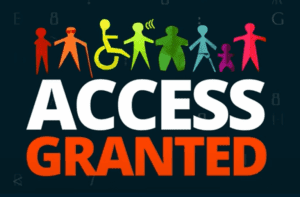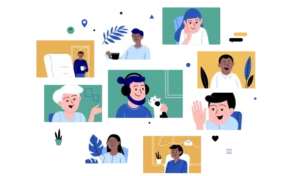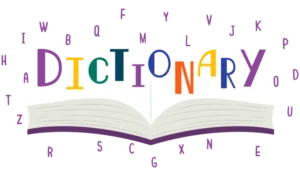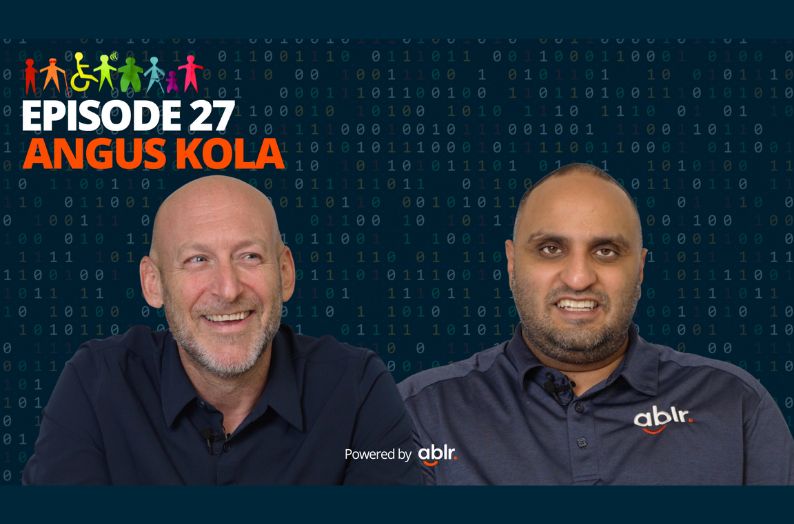Access Granted: Angus Kola Transcript. Tune in wherever you listen to podcasts
Mike: Welcome to Access Granted, the podcast where we spotlight the people reshaping the world through inclusion. I’m your host, Mike Iannelli, and I’m excited for you to meet today’s guest. He brings both technical insight and personal passion to the mission of accessibility, and also happens to be one of our talented team members at Ablr.
Angus Kola, otherwise known as AG, our Senior Accessibility Analyst, has spent over 15 years in IT, a decade in Assistive Technology, and a deep commitment to making education and digital spaces more accessible. But beyond the credentials, Angus sees accessibility as a path to independence, opportunity and dignity.
Well Angus, I gotta tell you man, I’ve been wanting to talk with you. Welcome to the podcast. Appreciate you being here, spending some time with us. Yeah the goal of this here is to kind of share your story a little bit. We’ve got a lot of questions for you, but you’ve had a unique background. The first thing I’m thinking is just one, introduce yourself and to share a little bit about your journey into this accessibility space.
Angus: Yeah, yeah, absolutely. Well I really appreciate you for having me here today Mike. It feels really great. I appreciate you also for the opportunity to allow me to share my story today. I call my life prior to losing my vision, my past life, and I call my life as a person who is blind my new life right?
Because they two total different lives. Also the way that I got into accessibility is, it’s not the most conventional way that you could possibly think of. So my story it began in South Africa. That’s where I’m originally from. I’ve lived there for what, like 25, 26 years of my life.
Within those years where I would say the first 20 years of my life, which is my past life, which I call it affectionately, I was a sighted person right? Which means I wasn’t totally blind. I guess they call people like that, fully functioning right, which means no sensory disability whatsoever.
You know during my twenties that’s when I lost my sight just before my adulthood, right? So a very tragic lost it all at one time. I didn’t lose my sight in South Africa. I lost it while in service, so I was contracting for the DOD. It just so happened that unfortunately I got in a mix up and I lost my sight all at one time out there.
Mike: That had to have been tough on you.
Angus: Oh, man, it was it was absolutely horrible. especially growing up in South Africa and losing my sight. Right now I’m very blessed to be involved in the accessibility and the blindness community. But after losing my sight all at one time, I didn’t have that support so I had to go back to South Africa and essentially just reboot and restart my life all over again.
Mike: Talk a little bit about that, what that experience was like. If you’re good with that.
Angus: I will tell you this, Mike. You know what I mean? Usually people always, especially if you’re thinking about growing up in a third world country you think your life is what you see right? When you see people that don’t have opportunities that are disabled, you think like, oh there’s a blind person standing on a corner of the street or in front of a shopping center or a supermarket begging for money.
That’s what my life’s gonna be right? But the one thing that was absolutely fascinating is that with the help of family and friends, they kind of pulled me out of that. They were like, no, no, no. That’s not what your life is. That’s not what your life is supposed to be. This happening to you because there’s probably something that’s bigger aligned for you.
So I set it as my path and my mission to say, okay now these people are probably speaking the truth and that’s what I need to do. Because I’m still around, still alive, still breathing. I need to figure out what that purpose is, right?
Mike: Starting over again, creating a new life, believing in that.
Understanding that there is something more for me, I can overcome this. How long did that take you to get on board with that kind of thinking?
Angus: Yeah it took a while. Obviously I didn’t have anybody inspiring at that present moment in time. It took an act after about a year of denial and depression and therapy and all the sorts of support that I needed is when I finally was able to get that strength to say okay I’m ready.
I’m ready to see what’s out there. I’m ready to learn what is it that I can now be doing with my life to be able to pivot. So by meeting other people that had similar stories to mine and also others that have lived with a disability all their life that have been very successful, it then jolted in my mind that yes, this is actually a possibility for you now. If they could do it you could do it too, right?
Mike: Good for your brother.
Angus: And yeah, absolutely. And then from there that’s when the challenge came around navigating to become independent right? Being able to learn how to feed myself again all over from scratch right? I mean we live in such a visual world that now when you lose your sight all at one time you have to now adapt to a whole new way of doing things like feeding yourself dressing, organizing your clothes. And I would say probably for me in my situation it took about another two years to be able to get to that point where I felt like I was at normal functioning level that I could now be more independent.
Mike: It’s a amazing amount of courage and strength, amazing amount of courage and strength. And that must have been absolutely overwhelming to accomplish what you’ve accomplished. But man you’re sitting here in front of me today and boy you’re senior accessibility analyst, you’re now training and educating our internships, our intern programs.
You’re doing all of our testing and accessibility for websites for all these great brands. You’re independent, it’s an honor bro to be sitting here with you. I mean that sincerely man. You have a really unique background in what you’ve done. I mean, I remember when we first met, you’re like I’m in tech.
I wanna be in tech. We were just here talking about it earlier ago. I mean what got you into tech? Like what was that? I mean obviously you’ve got Assistive Tech, right? And you’ve got information technology is what you’ve always been sort of passionate about computers, like where did that sort of passion come from?
Angus: Yeah so to tell you, now let’s start off from my past life right? When I had sight I was more of a technology enthusiast. So not necessarily a person working in tech, but it was a big part of my life especially with what I did right? So I wanted to get into med school, not to become a doctor, but I actually wanted to become like a registered nurse right?
Like somebody that travels all over the world. Gets to meet people but also be able to help people right? Get to learn about different cultures and that’s something that was very dear and true to me. And then up until the point after losing my sight, obviously I realized that this is something that I can’t do anymore.
Like this is not something that or field that I can work in at the capacity of what I used to do right? Like working as a first responder at that point. And then slowly working myself up the ranks to becoming a registered nurse. But the thing is after losing my sight I got introduced to screen reader. Screen readers right?
I got to learn about them and I’m like this is absolutely phenomenal. You mean that people who are blind can actually use computers and they were like, yeah absolutely. And they were like you know if you listen to your computer you can interact with your computer just using a keyboard without having to see.
And you just listen to all of the audio output as you’re navigating through. And then you can do commands on the keyboard in order to be able to navigate the computer as well as do whatever tasks it is that you need. And I’m like oh my God this is phenomenal. Where do blind people usually work?
And they’re like, well blind people are in multiple different types of industries right? So I was like, well what else do I like other than medicine and culture? I was like okay well technology is definitely something that I’ve always loved right? Like I was the type of kid in South Africa that. You know I was like one of the first people to ever get connected to the internet.
When it came up, the 56 K modem, learning about different cultures right. In South Africa at that time you had to pay for school and family didn’t have a lot of money unfortunately. So one of my ways of being able to make money is to do technology gigs for people right?
Like I used to do a lot of DJ. So I wasn’t like a professional type of a DJ, but people always wanted me at their parties right? They would pay me, I would go take my computer and take my speaker system and my interface and plug everything up. And that’s kind of like how I collected money right?
I started learning technology and a lot of hard work is actually what got me through being able to pay for my high school, my elementary school, my high school, and then even like some of my college classes to be able to get my EMS certifications.
Mike: So talk about like what you do today now right?
Because you’re a senior accessibility analyst. Explain what that looks like in a day in a life for you when you get up in the morning and get ready for work.
Angus: One of the biggest things of being an accessibility analyst, it’s that it’s that situational awareness. You are essentially an educator apart from just being able to test websites and finding accessibility issues on a website or on an app.
It’s sitting down with people and making them aware of the challenges that people with disabilities have. When trying to interact with whatever platform it is or service that they are providing digitally I always sit down in front of an application. And I always look through whatever that application is and I’m trying to find the vulnerabilities or the bad guy right? Which is what I call the accessibility issues.
Then we document those issues, we find and identify the bad guy. So it’s like the crime scene right? Not to say that they do bad things on the website or on the app, but it’s kind of like what motivates me right? It’s what motivates me. And then what I do is then I feel like the investigator and then I’m delivering on the scene.
Oh this is what’s going on and this is how we fix it right? This is how. This is how we identify, this is how we fix. So identifying what the issue is right? Okay. A screen with a user will not be able to do a particular thing on this right? Like if I’m trying to buy a product, I can’t add it to a cart you know?
Or I’m completely lost and this is why I’m not able to do that. And being able to teach people that. And a lot of the times when they look at you with your screen reader talking like maybe a hundred miles a minute and you doing it. And you show them the roadblock, they’ll be like oh my goodness, I did not know, I was not thinking about this.
How can I make it better?
Mike: Yeah. So we always talk about misconceptions here because that’s. Education is such a critical component, but what’s like one of the biggest misconceptions that people have about digital accessibility?
Angus: You know working in this field sometimes it’s the push back, you know? It’s like, well it works. Why don’t you just click here? Why don’t you just tap on that like it’s right there. It’s the situational awareness. It’s just people just don’t know. Right? They don’t know until you show them, until you teach them, until you make them aware right? Yeah. And then you tell them about the benefits of it.
Right? Because accessibility, it’s not only just, okay well we’re gonna help this one demographic one, this one demographic of people with disabilities. No it basically includes everybody right? So you give them that situational awareness like, Hey look this is gonna benefit everybody.
Mike: So talk to me. I mean, there’s always another misconception is automated testing tools right? So there’s some value in those but talk to me a little bit about that. The difference between the automated tools and then the importance of the manual testing side.
Angus: You have AI, you have automated tools, and then you have manual testing.
The best approach to be able to look at being able to do testing and providing recommendations and to be able to bring that situational awareness for developers is, the automated testing is great, but it shouldn’t be your only relying factor, right? The same thing with AI. AI doesn’t necessarily always get everything right.
And then for manual testing, the manual testing is very important because what it does is it allows you to actually interact with human beings that use these systems right? So you could be using an automated testing software and you may be using AI to be able to try to help you to fix that and remedy that issue.
But if you don’t have the person with that particular disability that’s using that technology to be able to tell you and give you that most critical piece right. That end goal to say, yes this works or it doesn’t work type of a deal. So you could be putting all this effort right?
Mike: With automated tools and AI they don’t capture the large percentage, it’s just a small percent and the other tools aren’t there yet. They’re a nice starting point and to me, I always say, Hey these tools are fine after you do the manual audits. So Angus, organizations just starting out right? We need to do something. Well what’s the first thing that you tell them to do?
Angus: Yeah so starting with accessibility, I would tell them that the best way to start is in the design phase right? So you gotta be thinking about accessibility from the beginning of anything. So like if you’re thinking about building a website or an application and you’re designing it. It’s always one thing to think about accessibility and to implement it at its design phase right? You don’t wanna build something and then say, oh now I have this thing. Now I want to try to be able to do, I wanna be able to do the screen of the testing to identify the issues. And now you tell me what the issues are and then now I’m gonna try to build it.
It’s a whole lot more difficult to be able to do it that way.
Mike: I wanna talk about something that you do now, and this is a sort of global impact. Every year you head out to South Africa back home and it’s something that kind of drives you. I mean some of the posts we did, we saw you with some elephants out there doing some tours with your friends. But why do you go back every year other than to see family talk about what you’re doing and what the impact is, but what really drives inside of you the wanting to do this?
Angus: Yeah absolutely. I always look back on myself and I always think about the community back there right? Like do they have the necessary tools? Right? The blind and the vision impaired community out there, do they have the necessary tools to be able to provide them with that opportunity of also living independently?
Right? So I was very fortunate enough to be able to have family and there were a lot of people that came in and inspired and helped me along the way. So I also want to be that type of a support for somebody else. A lot of people that do not have canes.
Mike: Well you’re bringing at em, you’re saying, Hey fly 24 hours over the pond, gonna make an impact. I’m gonna bring white canes. I’m gonna help these kids out create an independence for them that they may not have ever had. So how’s that feel inside when you know that you’re changing people’s lives like that?
Angus: Oh man it’s an amazing feeling to be able to know that I have the opportunity to be able to give back and to be able to support these individuals right? So it even goes beyond the scope of the white cane right? Which is the white cane should be all right. It shouldn’t be a privilege right? So I feel everybody who’s blind and who has low vision should have a mobility cane to be able to help them to get around.
I think the last trip that I went I counted at least, I want to say maybe close to like a thousand cans that I’ve taken with me back and forth through the trips. That I hand out there.
Mike: Yes Angus. That is amazing brother.
Angus: Yeah. Yeah absolutely. I mean, I can tell you story of a home that I visited and there was an 11-year-old, her family did not know how to take care of her.
She couldn’t really get to the bathroom by herself or even yet be able to walk to the kitchen from the room where she was to be able to feed herself or make a sandwich. Right? Which is an essential thing. And she didn’t have a cane. She didn’t know anything. She couldn’t even really speak. The one thing you know that I was really happy about for this child was being able to put a cane in her hand, then be able to show her the cane, what the cane is, how we can help her to get around. It’s like relearning. You know how to live
Mike: Angus, it’s incredible man. One of the things you mentioned to me before was this whole desire that you had a dream. It’s like bringing blind ambassadors back with you in the future. What is your vision for this?
I mean obviously every year you go back and you’re doing this. I’m assuming you have some support of people that are there, or you just go by yourself and say I’m gonna do this on my own.
Angus: So I do have support. I do have a really good organization, good friends of mine that I work with. It’s an organization called Cane Give and basically they collect canes and donations and we have a lot of partners on the continent, like in Africa and South America, and even in Asia now.
Mike: It’s a large scale thing. A lot of times organizations will think, well there’s just not enough people out there. There’s just such a small, small, small, small piece. We don’t need to make these changes. You know the disability community is so small, but in reality it’s not. It’s a very large community.
And I kind of wanna segue into another great thing that you’re doing is this mentorship program. So obviously our workforce development program, we work with Division Services for the Blind. We recruit individuals looking to make a massive change in their life and create even a more independent flow in their life with a new career opportunity, new education.
Talk about this internship program and how you’re mentoring our students and how you’re preparing them.
Angus: Yeah, yeah absolutely. So it’s giving them that experience, that real world experience to be able to get meaningful employment right? So sitting down with them, mentoring them, giving them very critical feedback that they need, that they can use on a professional basis that can help empower them in the workforce right?
We also have the technology piece as well, which is something that we are going to be concentrating very heavily on right? So this is the very critical technology skills that our candidates require to be able to be successful in the workplace you know what I mean?
If you think about gainful employment and you think about the workforce it’s highly, highly competitive right? And the requirements right, and the level and the speed of proficiency, and the critical thinking and the problem solving abilities of being able to complete those jobs as a person with a disability is, it’s very crucial.
So that is something again right, that we’re also incorporating our leveling up to be able to teach and equip our candidates to be able to walk and step into the workforce. With the necessary technology skills to be able to perform those tasks and workflows and processes of these employers that we’re gonna put them in front of to be very successful. Right?
Mike: I’m interested in your perspective on the staffing component. In many ways, it’s really not that complicated.
Angus: No, it’s not. It’s really a mindset. It’s a mindset that needs to be changed, and if that mindset can be changed, then it can be altered to all positives right? Then what would happen is then we’ll have that workforce and we’ll have those employers that would say, okay well these are not necessarily challenges right?
We can benefit from these people. These people have something that is very valuable to be able to provide to us right? As opposed to looking at.
Mike: Talk about that. Talk about one of the valuable pieces. It’s different, right? So you’re looking at onboarding new people, new professionals, and a lot of times in corporate America it’s hard to keep people motivated.
It’s hard to find the right resources and it’s a challenging time. And then keeping people and retaining people under even expenses as she died. And you start thinking about our group of people that come out of our program. What really differentiates that?
Angus: What we need here is to be able to figure out, and I call it one big word it’s value right?
It’s the value aspect. So when you’re working for a company, it’s being able to give them that value, something that they don’t have that you can bring forth for them. If that makes any sense. Right? And so it’s like when you’re working for a company the one thing that I’ve learned is it’s being able to do your job, being able to do a workflow, but what are you bringing?
What level of work are you bringing that’s very unique and very valuable for that company.
Mike: So a unique perspective of course right? But then there’s other things like loyalty right? That’s seek value, consistency, exchange. There’s a level of grit and motivation and gratitude for the work.
And so when you start thinking about differentiating your resources and your team, you know what better way than to hire somebody with a diverse background, someone with a disability who’s bringing a whole new perspective and change into the organization, and that’s magnetic.
Angus: Yes, it is absolutely 100%. You are 100% Mike. I think you touched on all of those points right? The ideal candidate of what we trying to mold the benefit of Assistive Tech levels the playing field. So I will say this right? Like so somebody that has worked in Assistive Technology now for I would say maybe 10 years, right?
I would say that it is definitely like even if you think about here at Ablr right? It’s our flagship program. It’s basically what we bolt our company off of right? But the direction of where we are going now it’s also being able to provide multiple other types of technologies right?
So if somebody wants to get in a customer service, if they go through the technology program here at Ablr, we could possibly give them a kickstart into a career of working in customer service, depending on however far they want to get to. Right? Whether it’s customer service, working as a lead person in customer service, somebody that can work in medical transcription or whatever it is that they wanna get into, whether they want to go to school even.
Right? A lot of people coming in maybe they just lost their vision. Oh I want to go to school. I want to get a degree. But I want to be able to know what technology skills do I need that would make me, I’m more than likely candidate to be successful in school with technology. But then in addition, also learning about accessibility right?
Mike: With everything going on right now, what keeps you motivated?
Angus: Yeah man, I tell you what I just think it’s the dedication right? So I mean even if you think about political, if you think about a lot of the uncertainties that’s going on out there. Being laser focused, being able to be able to provide people with those critical skills.
Right? So if you think about a political mindset of what the administration looks at as of time or this recording, it’s like, oh well we don’t want it to be like who you are kind of a base, but what can you do type of a deal. We as a disability community we need to be motivated enough to be able to say, okay well if it’s not that you need to be able to hire a quota of 15 blind people. Well let’s make it now that you’re going to be hiring 15 very, very highly skilled blind people right?
Or whoever it is with whatever disability it is that we got this, we know what we are doing. We got a lot of grit. We have a growth mindset. We are very agile and we have a lot of value to bring to your company. Something that you don’t have at the moment that you want, that you’re seeking. This is something that we have for you.
This is an opportunity that we can give you. So when you hire us, we have a lot of merit, right? Ablr’s mission continuing to grow and evolve, I see it continuing to grow and evolve by us. Identifying the needs right? So if we’re looking at it, if we’re looking at it from the work standpoint right? We look at it from like, okay well the job market, we look at the job market and we look at what’s out there.
We look at what are the skills that people need, what do they want right? Being one step ahead is always the best thing right? I mean even with accessibility right? It’s being one step ahead. It’s always refining our methodologies in the way of how we do things and how we think. And how we present. So the more we can involve, the more we can stay ahead of the game.
I think the better off we are going to be.
Mike: Angus, man, I am so glad we had time today to do this brother. I’m grateful for your work. I’m grateful for your commitment. I’m grateful for the evolution that I’ve seen personally witnessed over the last few years working with you. It’s great to see that you’re involved in the workforce program now and applying all the skills and the life lessons that you’ve learned to help our candidates.
It’s really beautiful to see man, and I’m glad we had this time to talk man. Thanks for everything you do. Keep up the good work, thanks for being on the show.
Angus: Yep my pleasure.
Mike: That’s a wrap on this episode of Access Granted. Today we explore what accessibility looks like in real life from the back-end of web development to the front lines of global inclusion. Angus’s journey reminds us that accessibility isn’t just a checkbox, it’s a true commitment. Whether you’re designing a website, leading a classroom, or rethinking your organization’s culture, there’s always room to do better for more people.
We hope today’s conversation sparked reflection, hope, and maybe even a bold next step. Be sure to subscribe, share, and join us next time as we continue spotlighting the champions of access, equity, and human-centered change.
